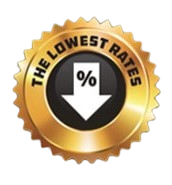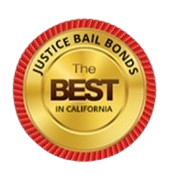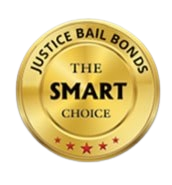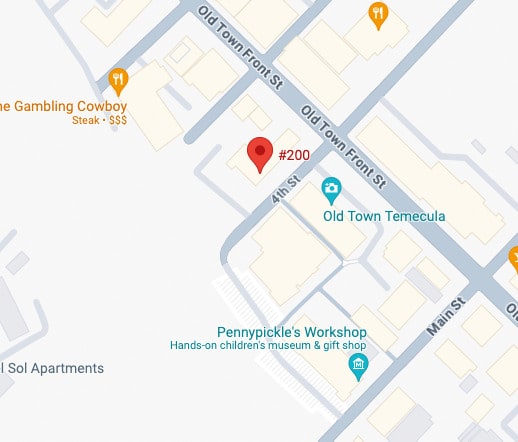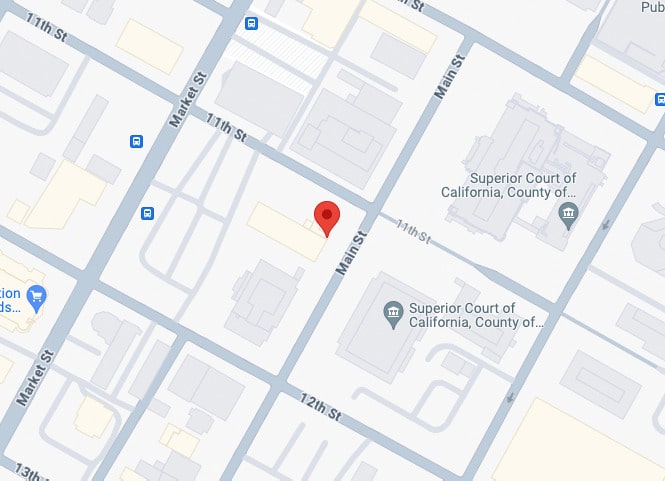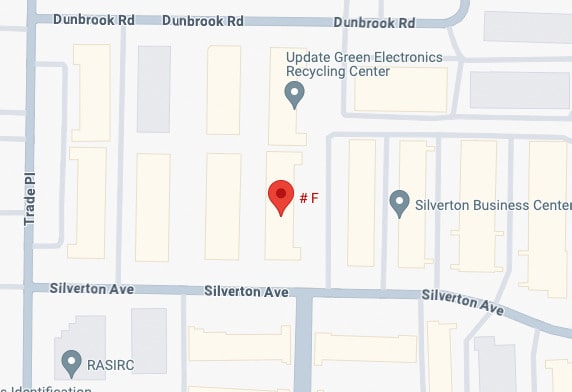Drug crimes are always serious and can attract severe penalties, including a jail term or even imprisonment in a state prison. The penalties you face will depend on the exact drug crime you commit. For example, possessing a controlled substance attracts less severe penalties than possessing a controlled substance for sale. If the police arrest you or a loved one for a drug charge, you should immediately contact a reliable bail bondsman. You need a bail bondsman who is an expert in posting bail bonds for all types of drug offenses to have you or your loved one out of jail as you await trial. You do not have to remain in jail as you await trial. Securing a prompt release from jail gives you ample time to work with your attorney to create a solid defense to fight your drug charges.
Drug Offenses Are Serious
When the police arrest you for violating California drug laws, you could face charges for possession of drugs or the intent to distribute drugs. Sometimes, the police can arrest you unlawfully without a search warrant. You could face an arrest even when the drugs involved do not belong to you. Often, the arresting officers misinterpret the California drug laws. Whatever the case, a bondsman will help you get out of jail to give you time to prepare for your court hearings.
You must contact an experienced criminal defense attorney to discuss the way forward regarding your drug case. However, before that, the priority should be a bailout from jail. This is where a professional bail bond company comes in.
Drug Laws and Penalties In California
You should go for a bondsman who deals with all drug charges, from simple possession to intent to distribute. The standard drug charges under California law include the following:
Under The Influence of a Controlled Substance - HSC 11550
It is a crime under HSC 11550 for anyone to use or be under the influence of a controlled substance without a valid prescription. Some controlled substances include meth, depressants, stimulants, heroin, and cocaine. A controlled substance could also be drugs like codeine, morphine, and hydrocodone.
The police can easily detect if you are consuming certain drugs. You could exhibit some physical signs of intoxication if you are under the influence of a substance. The prosecutor must provide sufficient evidence to prove that you were under the influence of a controlled substance.
You could face misdemeanor charges if you are guilty of violating HSC 11550. Misdemeanor charges, in this case, attract a minimum jail term of 90 days and a maximum of one year. The court could also order you to enroll in a drug treatment or diversion program.
Possession of a Controlled Substance - HSC 11350
According to HSC 11350, you could face charges for possessing a controlled substance for which you do not have a valid prescription. Some drugs could include ketamine, Xanax, codeine, heroin, LSD, Valium, Hydrocodone, peyote, cocaine, and oxycodone. The prosecutor must prove that you possessed a controlled substance to face charges under this statute. This means you had control over a controlled substance in another location. The prosecutor must also prove that you had knowledge of the controlled substance and that the substance was in the usable amount. It must be evident that you knew you were in possession and the substance was usable.
You could face misdemeanor charges for violating HSC 11350. Misdemeanor charges generally attract a fine of up to $1,000 and a jail term that does not exceed one year in county jail. However, in other situations, you could face felony charges for violating HSC 11350. This could only happen if you have a prior charge with a serious felony or sex crime. If the judge convicts you of a felony, you could face a jail term of up to three years in a county jail.
Possession For Sale Of Narcotics - HSC 11351
You could face felony charges under HSC 11351 if you are guilty of possessing a controlled substance with the intent to sell. This law applies to illicit street drugs like LSD, heroin, and cocaine. Prescription drugs like codeine, hydrocodone, and oxycodone are also covered under HSC 11351.
If the prosecutor accuses you of violating HSC 11351, this statute requires proof that you possessed the controlled substance. The prosecutor must also prove that you knew you possessed the substance and you were aware of the substance's nature as a controlled substance. The prosecutor must also prove that you intended to sell the substance and it was in a usable amount.
Some of the evidence the prosecutor could provide to prove you guilty under HSC 11351 include:
- Large amounts of cash.
- Large amounts of any kind of controlled substance.
- Large amounts of other types of drug paraphernalia.
- Large quantities of packaging materials and scales.
- Further evidence of drug transactions.
A violation of HSC 11351 is a felony. You could face a fine of up to $20,000. You could also face a jail term of two, three, or four years in a county jail. The judge could also order you to serve probation and a jail term of up to one year in a county jail.
However, if the prosecutor provides evidence that you intended to engage in several sales, you could face the above penalties for each planned sale.
Sale or Transportation of a Controlled Substance - HSC 11352
You could face felony charges under HSC 11352 if you are guilty of selling, transporting, administering, importing, or furnishing a controlled substance. The substances covered by this statute include:
- Peyote.
- Heroin.
- Cocaine.
- Gamma-hydroxybutyric acid.
- Opiates and opiate derivatives.
- Certain prescription drugs like hydrocodone and codeine.
According to HSC 11352, a first-time offender could face a fine of up to $20,000 and felony or formal probation. You could also face a jail term of three, six, or nine years in a county jail. Alternatively, you could face a jail term of three, four, or five years under the realignment program if you engage in drug trafficking across at least two county lines.
You must adhere to the following conditions if the court awards felony probation:
- Avoiding any other crime.
- Agreeing to submit to police searches.
- Pay court costs.
- Counseling.
- Completing a treatment program.
- Participating in community service.
- Submission to random drug testing.
- Meeting your probation officer regularly.
The judge could do the following if you violate your probation conditions:
- Revoke your felony probation and send you to jail.
- Change your probation conditions and include more severe conditions.
- Give you a warning and reinstate the same conditions.
Possession Of Drug Paraphernalia - HSC 11364
It is an offense under HSC 11364 for you to possess drug paraphernalia. According to this statute, drug paraphernalia means items used for illegal smoking, injecting, or otherwise taking controlled substances or narcotic drugs. It can be hypodermic needles, tourniquets, roach clips, rolling papers, syringes, pipes, or miniature cocaine spoons.
If the prosecutor accuses you of violating HSC 11364, he/she must prove that you have control of the drug paraphernalia. The prosecutor must also prove that you knew the drug paraphernalia existed and had knowledge that it was paraphernalia.
You could face misdemeanor charges if you violate HSC 11364. In this case, you could face a jail term of six months in a county jail or a fine that does not exceed $1,000. If you hold a professional license, a conviction under HSC 11364 could also adversely affect your career. For example, if you are a teacher and are convicted under this statute, you could be sent on compulsory leave while you wait for the resolution of your case. Your business license could also be revoked if your enterprise deals with drug paraphernalia and you are charged under HSC 11364.
Additionally, a conviction under HSC 11364 could affect your ability to:
- Rent a house if the house owner carries out a background check.
- Securing a job if your charge appears in your background check.
- Be approved for an immigration green card, citizenship, or visa if you are a non-citizen.
Manufacturing A Controlled Substance - HSC 11379.6
According to HSC 11379.6, it is an offense for any person to manufacture, prepare, process, derive, produce, convert, or compound any controlled substance. The substances covered under this statute include PCP, meth, LSD, cocaine, and ecstasy. For you to face the charges under HSC 11379.6, this provision requires the prosecutor to prove that you manufactured the substance. He/she must also prove that you knew the substance's nature as a narcotic.
You will face penalties according to HSC 11379.6 based on your criminal history. The applicable penalties will also depend on whether you engaged in any other unlawful activity while manufacturing a controlled substance. The judge will also charge you based on the quantity of drugs involved and the place of your manufacturing.
You could face detrimental consequences if you are guilty of violating HSC 11379.6. A violation could attract imprisonment of three, five, or seven years. You could also face a fine of up to $50,000. Additionally, you could face a 15-year imprisonment if you manufacture large amounts of the substance. You could also face a three, four, or five years jail term if you offer to manufacture the substance.
Bail Bonds For Marijuana-Related Offenses
You can also access a bail bond if you face charges associated with marijuana. Some of the marijuana cases could include:
Possession Of Marijuana — HSC 11357
It is a crime under HSC 11357 to possess marijuana illegally. However, this law allows adults aged 21 years and older to possess up to eight grams of concentrated cannabis or 28.5 grams of dried marijuana. It is an offense to possess more than these amounts or to possess marijuana near a K–12 school. It is also a crime for a person under the age of 21 to possess any quantity of marijuana.
You could face misdemeanor charges if you are guilty of simple possession of excessive quantities of marijuana. The judge could impose a fine that does not exceed $500. You could also face a jail term that does not exceed six months in a county jail.
If you are under 18 years old and are guilty of possessing more than eight grams of concentrated cannabis or 28.5 grams of marijuana, you could face infraction charges. The court could also order you to enroll in a drug-counseling program and participate in community service.
Possession of Hashish - HSC 11357 (c)
In 2016, voters approved Proposition 64, which allowed the use of concentrated cannabis. This law became effective on January 1, 2018, and now adults aged 21 years and older can possess and use eight grams of concentrated hashish. Concentrated cannabis is typically a separate resin secured from marijuana plants. The resin has marijuana's psychoactive ingredient known as tetrahydrocannabinol (THC).
You could face misdemeanor charges for possessing more than eight grams of concentrated cannabis for personal use. You could face a fine of up to $500 or a jail term of six months in a county jail. You could also face a jail term of six months in a county jail if you possess hashish with the intent to sell it, unless you have a state license to sell marijuana products.
You could face felony charges if you possess hashish with the intent to sell it without a license. This could only happen if you have two prior misdemeanor charges and tried to sell to a person under the age of 18.
Sale of Marijuana — HSC 11360
It is a crime under 11360 for any person to sell, give away, transport for sale, or import any amount of marijuana without a license. The judge could convict you of a misdemeanor or a felony if you violate HSC 11360. Misdemeanor charges could attract a fine of up to $500 or a jail term of six months in county jail. You could face a jail term of two, three, or four years in a county jail if the judge convicts you of a felony. You could also face serious collateral repercussions for a felony conviction. They can include:
- Losing your gun rights permanently.
- The duty to reveal your conviction status when asked while seeking employment.
DUI of Drugs Charges And Bail Bond
You can also secure a release on bond if you face an arrest for DUI of drugs or DUID.
DUI of Drugs
It is an offense to drive under the influence of drugs or the combined influence of drugs and alcohol. For you to face DUID charges, the prosecutor must prove that you drove the vehicle while under the influence of a controlled substance. You could face misdemeanor charges if this is your first, second, or third offense. You could face probation for three years if you are a first-time offender.
Drug Possession And Intent To Distribute Drugs
Law enforcement usually relies on several factors to distinguish between drug possession and the intent to distribute drugs. Some of the factors include:
Client Messages or Contact Details
Lists of clients, pagers, voicemails, and phone messages or numbers always provide compromising evidence of intent to distribute drugs.
Money Lying Around
If the police find you with a lot of money lying around, it could be sufficient evidence of possessing drugs for sale or the intent to distribute drugs.
Presence of Drug Paraphernalia and Equipment
Electronic scales and other drug-measuring equipment are enough evidence to show that you are preparing to sell or distribute drugs.
Presence of Packaged Drugs
Packaging drugs even in one plastic bag could be a clear indicator that you intend to distribute drugs, especially if several packages are waiting to be sold.
Large Quantities Of Drugs
If the police find large quantities of drugs, it could be sufficient to prove that the drugs are meant to be distributed or sold.
An Observed Drug Deal
Undercover detectives and line law enforcement can claim that they saw you giving out drugs, which are meant to be used by one person.
Alternatives to Jail Terms For First-Time Offenders
Several alternatives to a jail term are available for individuals convicted of drug or possession crimes for the first time. The first option is Proposition 36. This law allows you to undergo drug treatment for a period that does not exceed one year. The court could seek the services of an expert from the Department of Health to determine the level of treatment you need.
Drug court is another option. This one-year program involves random drug testing, counseling, judicial interaction, rehabilitation, supervision, screening, and assessment of risks. Treatment service professionals, social workers, community corrections, defense attorneys, prosecutors, and judges manage drug courts.
The third option is the Deferred Entry of Judgment program. This diversion program will require you to undergo six months of treatment while out of custody.
Find a Reliable Bail Bondsman Near Me
If you or a loved one faces an arrest for violating California drug laws and requires bail bond services, Justice Bail Bonds can help. We invite you to speak to one of our licensed and experienced bail bondsmen. Our services are available 24/7 because we understand that an arrest can occur even at night, on weekends, or on holidays. We are responsive. We will swing into action right after you contact us. Call us at 714-541-1155 to speak to one of our Temecula bondsmen.




